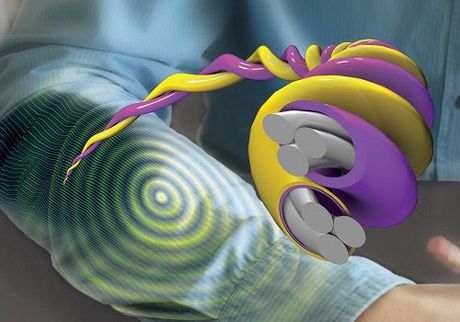Touch-sensitive woven skin

Engineering360 has reported that researchers from the King Abdullah University of Science and Technology (KAUST) have developed smart threads that can detect the strength and location of pressures exerted on them.
The researchers say this could help advance the development of electronic skins for use in robots and medical prosthetics.
Current developments in electronic skin are built up as arrays of several individual sensors, but the problem with these arrays is that they currently need complex wiring and data analysis, which generally makes them too heavy, large or expensive for large-scale production.
Yanlong Tai and Gilles Lubineau, of the KAUST Division of Physical Science and Engineering, have built their smart threads from cotton threads coated with layers of single-walled carbon nanotubes (SWCNTs).
“Cotton threads are a classic material for fabrics, so they seemed a logical choice,” said Lubineau. “Networks of nanotubes are also known to have piezoresistive properties, meaning their electrical resistance depends on the applied pressure.”
The researchers demonstrated that their threads had decreased resistance when subjected to stronger mechanical strains and, crucially, that the amplitude of the resistance change also depended on the thickness of the SWCNT coating.
These findings led to a breakthrough: the development of threads with a thick SWCNT layer at one end tapering to a thin layer at the other end. Then, by combining threads in pairs — one with graded thickness and one of uniform thickness — the researchers could detect not only the strength of an applied pressure load, but also the position of the load along the threads.
“Our system is not the first technology to sense both the strength and position of applied pressures, but our graded structure avoids the need for complicated electrode wirings, heavy data recording and analysis,” said Tai.
“We hope that electronic skins made from our smart threads could benefit any robot or medical prosthetic in which pressure sensing is important, such as artificial hands,” said Lubineau.
NSW renewables workforce receives $15m government investment
The NSW and federal governments are investing $15 million over four years into skilled...
Gilmour Space opens office in South Australia
Gilmour Space Technologies has opened an office at the Lot Fourteen innovation precinct to...
Fortescue commissions first battery electric locomotives
Fortescue has announced that it has commenced commissioning of two new battery electric...











